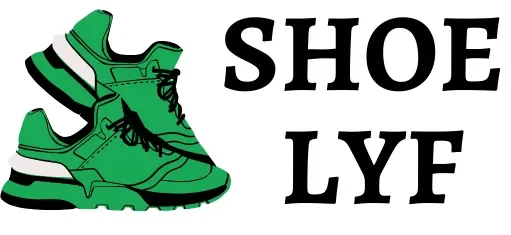If you’re an avid gym-goer or someone who likes to mix up their fitness routine, you’ve probably heard of the Nike Metcon line of training shoes. These versatile kicks have been making waves in the world of functional fitness, promising to provide the perfect blend of stability, traction, and flexibility for a wide range of activities, including weightlifting. But the burning question remains: are Nike Metcons actually good for lifting weights?
Buckle up, folks, because we’re about to dive deep into the world of Metcons and evaluate their suitability for lifting. Whether you’re a seasoned powerlifter or a newbie just starting your fitness journey, this article will help you determine if these shoes are worth adding to your gym bag.
What Are Nike Metcons?
Before we delve into the nitty-gritty of their lifting capabilities, let’s take a quick look at what Nike Metcons are and what sets them apart from regular sneakers.
The Metcon line was specifically designed for high-intensity interval training (HIIT) and functional fitness workouts, which often involve a combination of weightlifting, plyometrics, and cardio exercises. These shoes feature a flat, stable sole with minimal cushioning, providing a solid base for lifting heavy weights and maintaining proper form during explosive movements.
One of the standout features of Metcons is their flexible forefoot, which allows for a natural toe splay and grip during activities like rope climbs, box jumps, and burpees. Additionally, the durable rubber outsole offers excellent traction on various surfaces, ensuring you don’t slip or slide during your intense training sessions.
Pros of Using Nike Metcons for Lifting
Now, let’s dive into the reasons why Metcons are often praised as a solid choice for weightlifting:
Flat, Stable Sole
One of the most crucial factors for weightlifting shoes is a flat, stable sole. The Metcons deliver on this front, providing a solid base that helps you maintain proper form and balance during squats, deadlifts, and other compound lifts.
This feature is particularly beneficial for heavy lifting, where even the slightest imbalance can compromise your technique and increase the risk of injury.
Minimal Cushioning
While cushioning is desirable for running shoes, it can be a hindrance for weightlifting. Too much cushioning can create an unstable platform, causing your feet to sink and throw off your balance.
Metcons strike the perfect balance with their minimal cushioning, ensuring a firm, stable base for lifting without sacrificing comfort.
Flexible Forefoot
The flexible forefoot design of Metcons is a double-edged sword for lifting. On one hand, it allows for natural foot movement and toe splay during exercises like squats and deadlifts, promoting proper form and power transfer.
On the other hand, some lifters prefer a more rigid forefoot for heavy lifts, as it can provide additional stability.
Durable Construction
Metcons are built to withstand the rigors of intense training sessions. The durable rubber outsole and reinforced upper ensure that these shoes can handle the wear and tear of dropping weights, jumping, and other high-impact movements.
This durability is a crucial factor for lifters who don’t want to constantly replace their shoes due to excessive wear and tear.
Cons of Using Nike Metcons for Lifting
While Metcons have several advantages for weightlifting, there are a few potential drawbacks to consider:
Limited Ankle Support
Unlike dedicated weightlifting shoes with a raised heel and sturdy ankle support, Metcons offer a more minimal design. This can be a concern for lifters who require extra ankle stability, particularly during heavy squats or Olympic lifts. The lack of rigid ankle support may increase the risk of injury for some individuals.
Grip on Wooden Platforms
While the rubber outsole of Metcons provides excellent traction on most surfaces, some lifters have reported issues with grip on wooden weightlifting platforms. This can be a concern for those who train in facilities with wooden floors, as poor traction can compromise form and safety during lifts.
Flexibility Trade-off
The flexible forefoot that makes Metcons great for certain exercises can also be a potential downside for lifting. Some lifters prefer a more rigid forefoot for added stability during heavy lifts, especially when dealing with significant weight.
Limited Lifting-Specific Features
While Metcons are designed for versatility, they don’t necessarily have features specifically tailored for weightlifting. Dedicated weightlifting shoes often have raised heels to improve depth and positioning during squats, as well as metatarsal straps for added foot security.
Metcons lack these specialized features, which may be a consideration for competitive lifters or those with specific lifting goals.
Are Nike Metcons Good for Lifting? The Verdict
So, are Nike Metcons good for lifting weights? The answer, like many things in the fitness world, is: it depends.
For the average gym-goer or recreational lifter who enjoys a well-rounded fitness routine, Metcons can be an excellent choice. Their flat, stable sole, minimal cushioning, and durable construction make them a suitable option for lifting weights while also allowing for versatility in other training modalities.
However, for competitive lifters or those with specific lifting goals, dedicated weightlifting shoes may be a better investment. These specialized shoes provide features like raised heels, sturdy ankle support, and metatarsal straps that can enhance lifting performance and reduce the risk of injury during heavy lifts.
It’s also worth noting that personal preference plays a significant role in choosing the right shoes for lifting. Some lifters may prefer the added flexibility and versatility of Metcons, while others may prioritize the stability and support of dedicated weightlifting shoes.
Ultimately, the decision to use Nike Metcons for lifting should be based on your individual needs, goals, and lifting style. If you’re a functional fitness enthusiast who enjoys a mix of weightlifting and other high-intensity exercises, Metcons can be an excellent investment.
However, if your primary focus is on powerlifting or Olympic lifting, you may want to consider investing in shoes specifically designed for those disciplines.
FAQs about Nike Metcons and Lifting
To wrap up this article, here are some frequently asked questions (FAQs) about using Nike Metcons for lifting:
Can I use Nike Metcons for squats and deadlifts?
Yes, Metcons are suitable for compound lifts like squats and deadlifts, thanks to their flat, stable sole and minimal cushioning. However, some lifters may prefer dedicated weightlifting shoes with raised heels for improved depth and positioning during squats.
Are Nike Metcons good for Olympic lifting?
While Metcons can be used for Olympic lifting movements like clean and jerks and snatches, they may not provide the same level of support and stability as specialized Olympic weightlifting shoes. Olympic lifters often prefer shoes with raised heels and sturdy ankle support to optimize their technique and performance.
Do I need to buy dedicated weightlifting shoes if I already have Nike Metcons?
Not necessarily. If you’re a recreational lifter who enjoys a mix of training modalities, Metcons can be a versatile and cost-effective option. However, if you’re a competitive lifter or have specific lifting goals, investing in dedicated weightlifting shoes may be beneficial for optimizing your performance and reducing injury risk.
Can I use Nike Metcons for CrossFit workouts?
Absolutely! Metcons were designed with functional fitness and high-intensity workouts like CrossFit in mind. Their versatile design and durable construction make them an excellent choice for the diverse range of exercises and movements found in CrossFit programming.
How durable are Nike Metcons for lifting?
Metcons are built with durability in mind, featuring a reinforced upper and a durable rubber outsole. While the exact lifespan of the shoes will depend on factors like frequency of use and the intensity of your workouts, Metcons are generally considered to be long-lasting and capable of withstanding the rigors of weightlifting and other high-impact training.
conclusion
Remember, the key to finding the perfect lifting shoes lies in understanding your individual needs, goals, and preferences. Whether you opt for Nike Metcons or dedicated weightlifting shoes, the most important thing is to prioritize proper form, technique, and safety during your training sessions.

